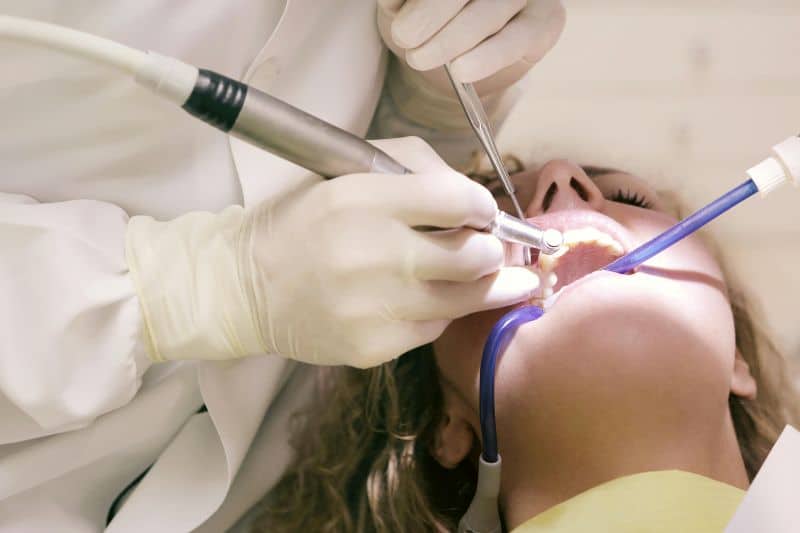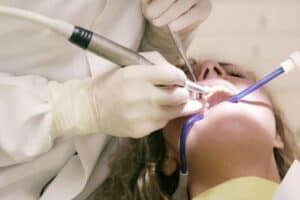
29 Jul The Link Between Seasonal Stress and Teeth Grinding
The Link Between Seasonal Stress and Teeth Grinding: 7 Eye-Opening Insights You Need to Know
As the seasons shift, our mental and physical health often changes too. From increased anxiety to disrupted sleep, one of the lesser-known effects of seasonal transitions is teeth grinding, also known as bruxism. This article explores the link between seasonal stress and teeth grinding, covering causes, symptoms, and science-backed strategies for prevention and treatment.
Understanding Bruxism: What Is Teeth Grinding?
Bruxism is a condition where individuals grind, gnash, or clench their teeth. This behavior can happen during the day, but most often it occurs at night, typically without the person realizing it. Over time, bruxism can cause significant damage to your teeth, gums, jaw, and overall health.
Teeth grinding is classified into two main types:
-
Sleep bruxism: occurs unconsciously during sleep
-
Awake bruxism: typically triggered by stress or anxiety
Left untreated, it can lead to enamel erosion, jaw disorders, and chronic pain.

What Is Seasonal Stress?
Seasonal stress refers to heightened emotional or physical strain triggered by environmental or situational changes throughout the year. It’s most commonly seen during major seasonal transitions, especially in the fall and winter.
Common Causes of Seasonal Stress
Some of the most common triggers include:
-
Reduced exposure to sunlight
-
Colder weather and shorter days
-
Holiday pressures and financial burdens
-
Increased workload or academic deadlines
-
Limited outdoor activity and exercise
How It Manifests Physically and Emotionally
Seasonal stress affects people differently, but common symptoms include:
-
Fatigue and irritability
-
Difficulty sleeping
-
Depressed mood or anxiety
-
Muscle tension, particularly in the jaw and shoulders
-
Increased reliance on caffeine or alcohol
All of these can contribute to behaviors such as clenching and grinding teeth.
Is There a Real Link Between Stress and Teeth Grinding?
Yes. A growing body of research has confirmed a strong correlation between elevated stress levels and bruxism. While teeth grinding has several causes, stress and anxiety—especially those triggered by seasonal changes—are among the most prevalent.
Psychological Mechanisms Behind Stress-Induced Bruxism
Under stress, your body enters a “fight or flight” state. This response leads to increased muscle activity, including in the jaw. The unconscious tension often transfers into the act of grinding teeth, particularly while sleeping.
Seasonal Affective Disorder and Oral Health
Seasonal Affective Disorder (SAD) is a form of depression linked to seasonal changes, typically occurring in fall or winter. It’s closely associated with poor sleep quality, anxiety, and muscle tension—all of which increase the likelihood of developing or worsening bruxism.
Symptoms of Stress-Related Teeth Grinding
Recognizing the signs of bruxism early is key to preventing long-term damage. Symptoms to watch for include:
-
Sore jaw or facial pain, especially in the morning
-
Flattened or worn-down teeth
-
Increased tooth sensitivity
-
Frequent headaches or earaches
-
Cracked or chipped teeth
-
Interrupted sleep or insomnia
-
Clicking or popping in the jaw joint
If you experience these symptoms more during certain seasons, it may point to a seasonal stress trigger.
When Are People Most Vulnerable to Seasonal Bruxism?
Certain times of year increase the likelihood of both stress and bruxism, including:
-
Late fall and winter months, when daylight hours decrease
-
End-of-year holidays, often associated with emotional and financial strain
-
The start of a school year or semester, which can add pressure for students and parents
-
Periods of extreme weather that interfere with outdoor activity or disrupt sleep
People living in regions with harsh winters or limited sunlight may be especially affected.
Who Is at Higher Risk for Seasonal Stress and Bruxism?
Though bruxism can impact anyone, some people are more vulnerable:
-
Individuals with anxiety, depression, or mood disorders
-
Those with irregular or shift-based sleep schedules
-
Children and teenagers under academic stress
-
Adults navigating major life changes
-
People with a family history of bruxism
-
Individuals with sleep disorders like sleep apnea
Genetics, personality type, and environmental stressors all play a role.

Long-Term Effects of Ignoring Teeth Grinding
Without treatment, bruxism can lead to serious oral health issues and chronic pain. These include:
-
Temporomandibular joint (TMJ) dysfunction
-
Migraine headaches and tension headaches
-
Excessive enamel loss and tooth decay
-
Gum recession and loose teeth
-
Sleep disturbances that affect overall well-being
-
Jaw disorders and chronic facial pain
Addressing it early is key to preventing permanent damage and improving quality of life.
Diagnosing Bruxism: When to See a Professional
If you suspect that seasonal stress is causing you to grind your teeth, consult a healthcare provider. A dentist can evaluate your teeth and recommend a treatment plan. You may also need to see:
-
A sleep specialist, if nighttime grinding is severe
-
A mental health professional, for stress or anxiety management
-
A physician, to check for underlying health issues
Diagnosis typically involves a physical exam, a sleep study, or bite analysis using digital tools.
Prevention Tips: Managing Seasonal Stress Naturally
Managing seasonal stress is often the first step toward preventing bruxism.
Sleep Hygiene and Relaxation Routines
-
Maintain a consistent sleep schedule
-
Avoid caffeine, alcohol, and heavy meals before bed
-
Create a calming nighttime routine with reading or meditation
-
Use blackout curtains or light therapy lamps during low-light seasons
-
Practice deep breathing or progressive muscle relaxation
Nutrition and Supplements That Help
-
Magnesium: helps with muscle relaxation and nervous system regulation
-
Vitamin D: supports mood and immunity, especially during low sunlight months
-
B vitamins: aid in stress management and brain function
-
Herbal remedies like chamomile tea, valerian root, and ashwagandha
Diet can play a significant role in stress reduction and muscle health.
Bruxism Treatment Options
At-Home Remedies
-
Apply a warm compress to the jaw to ease tension
-
Practice awareness techniques to reduce daytime clenching
-
Use stress-relief apps to track and manage anxiety
-
Try gentle stretching exercises for the neck and jaw
-
Reduce screen time and prioritize quality sleep
Medical and Dental Interventions
-
Custom-fitted night guards from your dentist
-
Cognitive Behavioral Therapy (CBT) to manage anxiety
-
Prescription muscle relaxants or antidepressants (if advised)
-
Botox injections for severe, chronic cases of muscle overactivity
According to the Mayo Clinic, early intervention improves treatment outcomes significantly.

FAQs
1. Can stress really cause teeth grinding?
Yes. Stress is one of the most common triggers for bruxism, especially when linked to changes in mood or sleep quality.
2. Does bruxism go away on its own?
In mild cases, it might. However, chronic or seasonal bruxism usually requires intervention through stress management or dental support.
3. Is teeth grinding more common during winter?
It can be. The reduced daylight and increased stress associated with winter months often contribute to sleep issues and mood disorders, both of which can trigger bruxism.
4. What age group is most affected?
Adults aged 20 to 40 and children under academic pressure are commonly affected, especially during stressful seasonal periods.
5. Can diet impact bruxism?
Absolutely. A lack of essential nutrients such as magnesium, calcium, and vitamin D can worsen muscle tension and stress-related symptoms.
6. How can I tell if I grind my teeth in my sleep?
Common signs include morning jaw pain, tooth sensitivity, and reports from a partner who hears the grinding during the night.
Conclusion
Teeth grinding may seem like a small issue, but when tied to seasonal stress, it can become a serious health concern. By recognizing the connection between seasonal transitions and bruxism, individuals can take proactive steps to manage both their stress and oral health.
From simple lifestyle changes to professional treatments, the key lies in addressing the root cause—often stress—before long-term damage sets in. Don’t ignore the signs; take action to protect your smile and your peace of mind.


Sorry, the comment form is closed at this time.